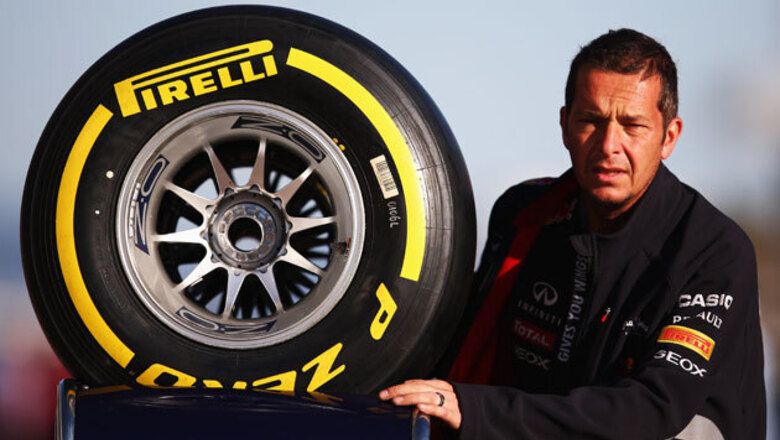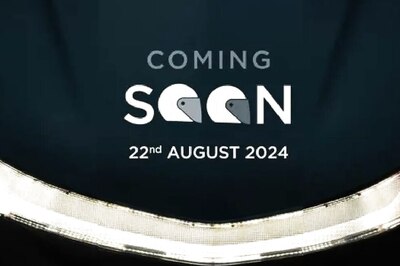
views
Paris: Mercedes pleaded for leniency Thursday from the governing body of motorsport, saying it deserves no more than minor punishment for taking part in tire testing that rival Formula One teams contend was unfair. Lawyers for Mercedes, tire manufacturer Pirelli and the International Automobile Federation (FIA) rifled through thick binders of evidence as they debated at an all-day disciplinary tribunal hearing in Paris.
A thrust of the FIA's argument was that the 620 miles of private tire testing with Pirelli in May in Barcelona offered an advantage to Mercedes that other teams didn't get. F1 bans the use of current-season cars for track tests. In response, Mercedes portrayed itself as having done a service to the whole of F1 because by offering up its car and drivers, it was helping Pirelli make its tires safer.
The tire manufacturer, for its part, outright rejected FIA's case, calling the charges against it "totally inadmissible." Immediately at stake was whether Mercedes and Pirelli would be sanctioned. A longer-term worry for F1 was whether the case risked antagonizing two big players in the sport - the German auto manufacturer that also supplies engines to other F1 teams and Pirelli, which supplies all of the tires for motorsport's premier series.
"Pirelli cannot accept and will not accept that its image and the quality of its products and its credibility be tarnished because of a case which is not admissible and which is unfounded," lawyer Dominique Dumas, speaking for the manufacturer, told the panel of four judges and a hearing president. Mark Howard, a FIA lawyer, said Pirelli tested a variety of tires, organized the test and paid for the Barcelona circuit. But Mercedes' 2013 car, driven by current drivers Nico Rosberg and Lewis Hamilton, was used and this offered an advantage to the German team, Howard said. The testing could have provided Mercedes with potentially valuable information about its cars and their reliability, he added.
"They have been enabled to do something which the other teams have not done," he said. "By testing the Mercedes car for three days, the 2013 car, with the current drivers and the current engineers, Mercedes may be said to have obtained an unfair advantage." "Clearly there was data that was available to Mercedes," Howard went on. "It is difficult to say that Mercedes gained no benefits from the test."
Howard noted that Mercedes has suffered with the wear and failures of Pirelli tires this season. That has given a comparative performance advantage to other teams, he said. To preserve that advantage, those teams might have objected in advance about the Mercedes test had they known about it, he suggested. Red Bull and Ferrari protested about the test after it happened. Mercedes lawyer Paul Harris insisted the German team drew no advantage because they didn't know what tires Pirelli had put on their car. He said these were purely and simply Pirelli tests: "They did it all, they were in charge of it all."
He also suggested the tests were warranted to help Pirelli improve the safety of its tires that have shed chunks of rubber, disintegrated on occasion, and drawn criticism from some drivers this season. "Our motivation was safety," he said. "We should actually be applauded for having that as our motivation." Any rules breach by Mercedes is, "in the scheme of things, a minor infringement," he said. "If there is to be any sanction, then it has to be a minor one."
Harris suggested nothing more serious than a reprimand, a suspended sanction or, at most, preventing Mercedes from joining other F1 teams when they run their cars in July at a three-day test for young drivers. The hearing president, Edwin Glasgow, promised a decision by Friday.
Harris also spoke at length about tests that Ferrari conducted last year and this year with Pirelli, without having to face charges by FIA. His suggestion appeared to be of double standards. Ferrari driver Felipe Massa drove in at least one of the Italian team's tests with Pirelli, and they ran "significantly more" than 620 miles, he said.
"If we did these nefarious things to the fundamental principles (of sports fairness) it cannot be the case that Ferrari didn't also do them," Harris said. Howard, the FIA lawyer, called the Ferrari test "a complete red herring." FIA said it did look into a Pirelli tire test involving Ferrari in Barcelona in April. But FIA President Jean Todt, who worked for Ferrari from 1993 to 2009, closed that case. FIA said the Italian team used its 2011 car for the test, which didn't violate the ban on current cars being used for track testing.
Harris, however, said 2011 and 2013 cars are very similar, the performance differences "minuscule." "They haven't even been charged by the FIA," he said of Ferrari. "It is not fair, we respectfully suggest, to treat us in a disproportionate manner different to Ferrari. It would send completely the wrong message out to the sport and to the wider world."
Another point of contention was whether Mercedes got prior approval for the test from the FIA. The team insisted it did - from Charlie Whiting, a veteran FIA executive who directs the running of F1 races, backed by the FIA's legal department. Howard, however, said Whiting's opinion wasn't binding and he wasn't the right person to authorize such a test. Howard said none of the other F1 teams was invited to the testing and none was aware it was taking place.
"If Pirelli and Mercedes had been transparent and open about what was going on" other teams would have been able to say beforehand if they objected, he said. Harris, for Mercedes, conceded: "We can see now with the benefit of hindsight how other teams may have become suspicious."
He acknowledged that Rosberg and Hamilton were asked to wear black helmets, masking their identity, for the testing. Mercedes now regrets that "and we apologize for that," Harris said. "That was not the smartest move, and I can see that, and we take that on the chin."




















Comments
0 comment